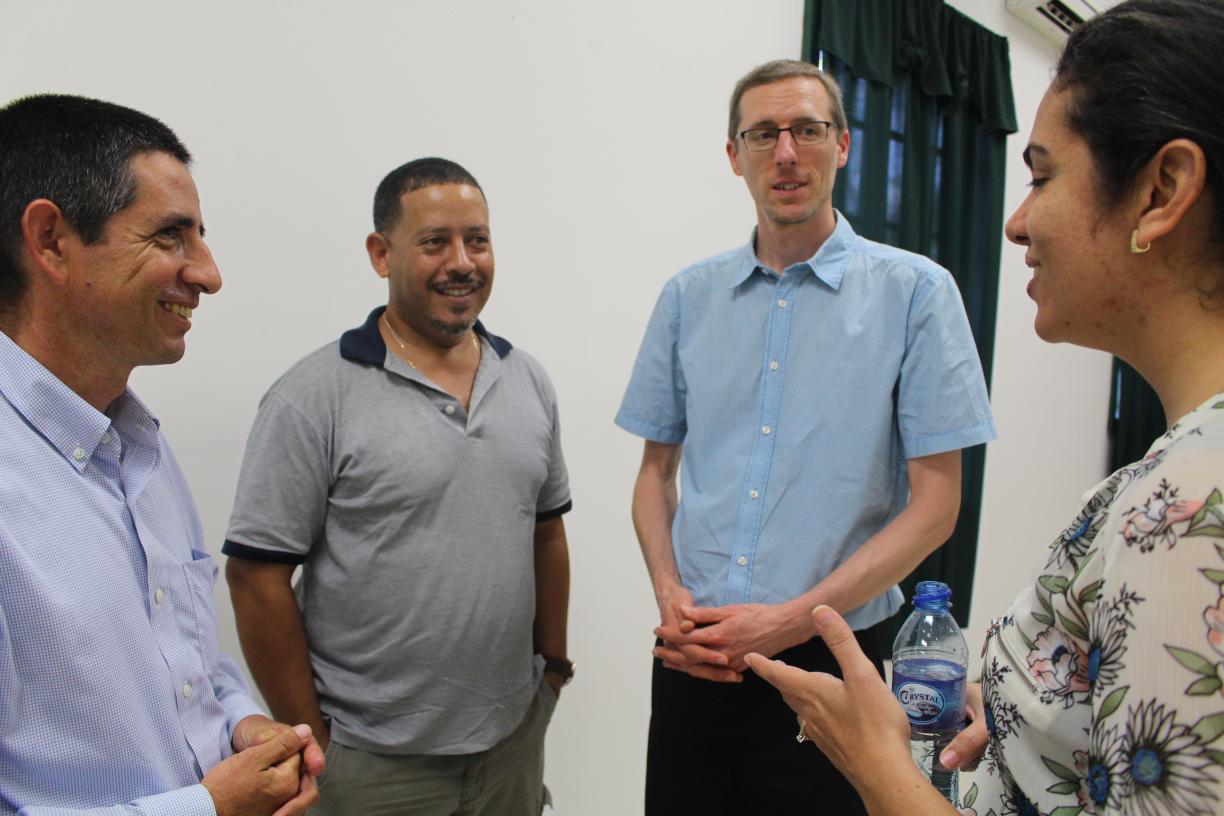Darrell Harvey, VIU’s International Projects and Internationalization Coordinator, has been working some strange hours as of late. He manages VIU’s Global Engagement team and is responsible for VIU’s international co-operation projects in far-flung countries around the world including Kenya, Belize, Tanzania, Peru, Chile, Colombia and Mexico. One of the impacts the pandemic has had on his work is that instead of being on-the-ground working face-to-face with partners in different countries, he is now connecting with them online from his home in Nanaimo. As the time change can be quite dramatic in some of the regions, this means he is often up in the middle of the night or in the small hours of the morning, working with partners to adjust to this new reality and continue VIU’s important international development work and foster cross-cultural connections – virtually.
1. What was your work like pre COVID-19?
I am focused on international cooperation work. The core of my responsibilities is to provide global engagement opportunities for faculty and staff to use their skills in an international sphere and assist partner organizations around the world to implement projects that will benefit their communities in positive and tangible ways. For example, in Belize we are working with our partners to develop programs in climate smart agriculture and forestry to build their green economy; in the countries of the Pacific Alliance (Peru, Chile, Columbia, and Mexico), we are supporting technical vocation education and training for women; and in Kenya, faculty from our carpentry, electrical and engineering programs are working with our partners to roll out a new Building Technology program.
2. How has the pandemic impacted your work?
Of course, a lot of the work we do is on the ground in various countries and that has been put on hold for now. And, as we are working on multiple continents, each of our partners is on a different part of the curve in terms of dealing with and managing the impacts of the pandemic in their countries. As well, each country is managing it in different ways – some are on total lockdown so nothing can be done on our projects; others have less stringent restrictions. We also have concerns as the impacts in some of these countries will be greater than they have been in Canada because they have limited resources for healthcare. So, at the moment we are dealing with many different situations and needing to create different approaches and provide supports depending on which country we are working with.
3. What are the challenges?
Each of our projects is very different and our partners do not have as many resources as we do, so sometimes we are relying on their passion and goodwill to keep partnership activities on track. As well, connectivity can be challenging. Then there is the time change – that’s meant a lot of early mornings and late nights for me to keep the partnerships going. Finally, we have some aspects of our work that simply have to be halted until we are able to travel again. In Kenya, for example, the partner is waiting on delivery of trades equipment being provided by the project funder and we are supposed to be on the ground to train our partners how to use it. Well, right now it’s sitting in a container and can’t be installed while their campus is on lockdown. So, there are definitely some parts of our work that must be put on hold until we are able to travel again.
4. What has this situation taught you?
The silver living to this is that this type of work has always required us to be adaptable. Our partner countries face challenges all the time – for example, there could be a change of government in a country and suddenly support for a project may be stopped. The pandemic has opened up the eyes of Canadians to the challenging reality other countries face more regularly. We now have a better understanding of what it means to face instability and uncertainty about the future; in short, this pandemic has made this challenging reality more present to us as Canadians. It’s also taught us how globally interdependent we are and how important it is to cooperate internationally. We need to look out for each other, share our knowledge and expertise, and that’s exactly what VIU’s international cooperation work is all about.
5. What are some of the other opportunities?
We are discovering new ways to support our international partners. For example, in September we were supposed to welcome our Belizean partners through the Skills to Access the Green Economy program to campus – that is unlikely to happen so we are looking at how we can connect and pilot more online learning technology to support our international training. This has been fun as it’s meant we are also connecting internally with VIU colleagues in new ways – such as our great friends in VIU’s Centre for Innovation and Excellence in Learning. As well, we are starting to support our international partners in implementing online technology to serve their students. In Kenya, we are helping them develop a teaching and learning centre and working with them to create opportunities for this centre to provide online support to their instructors, so the goal is to help build our partners’ capacity to use this technology for their own purposes. In many ways we are increasing our capacity to have a positive impact on the world, which is always VIU’s goal in actively engaging in this work.





